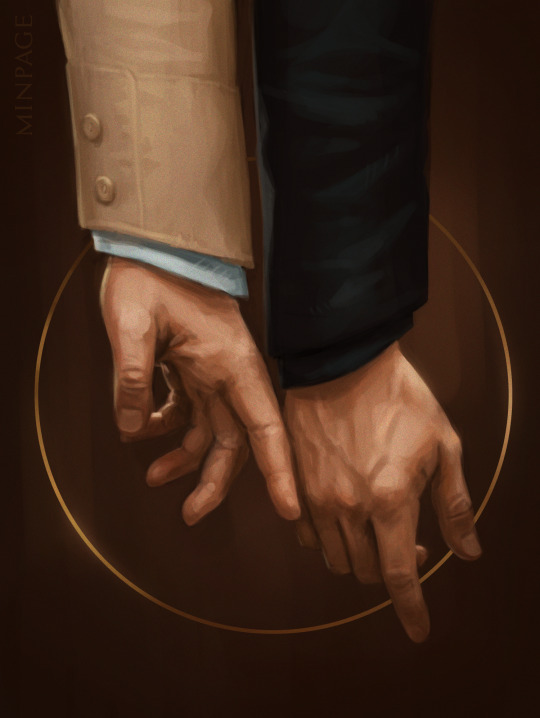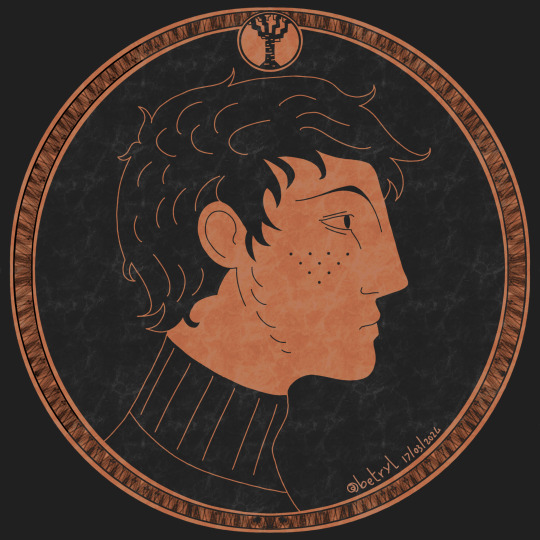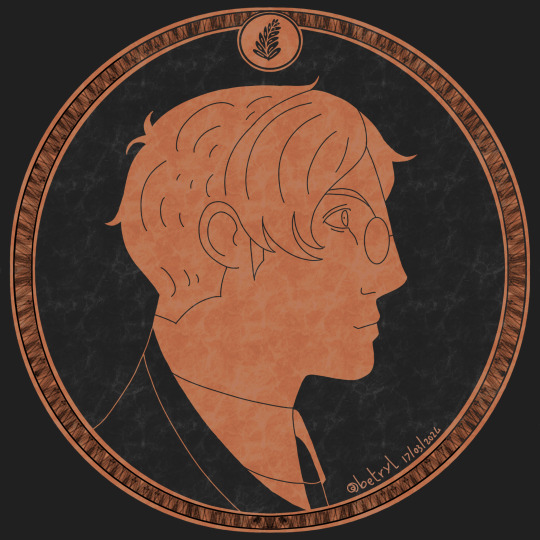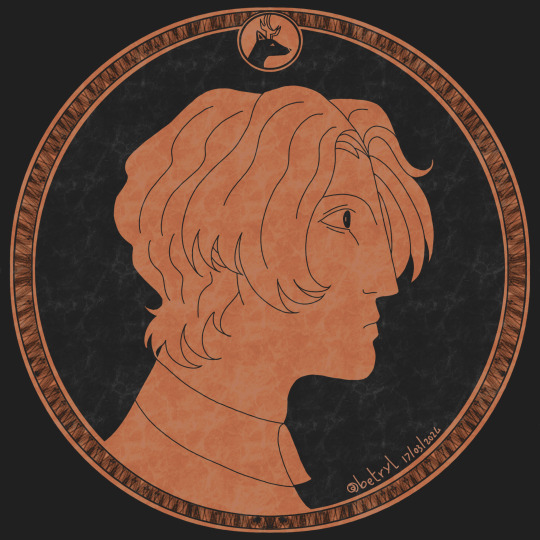Text
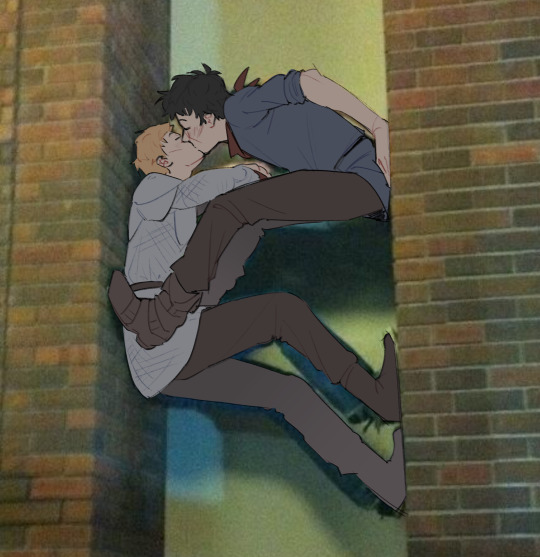
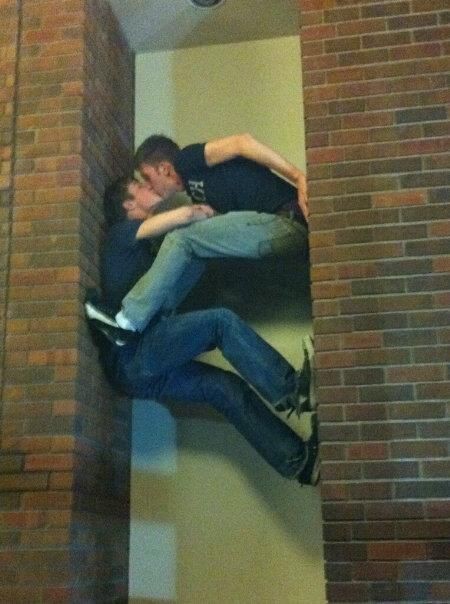
found my new passion: putting merthur into random meme pics
4K notes
·
View notes
Text
Tip Top, Thank You. Ticketyboo!
Did you all know that "tip top" is MLE slang for a blowjob?

Now that I have your attention lol, some etymological meta on The Ineffables' rather tip top use of slang and wordplay and just what it means to offer to say "thank you" in Ineffable Husbands Speak under the cut. It's absolutely ticketyboo...
When we humans who speak English refer to oral sex performed on a penis, the most common slang we use for this today is to call it "giving a blowjob." Linguistically-speaking, this term is actually relatively new and how it came to be is a truly muddled bit of etymological history. As recently as the early 1950s, the American military was innocently referring to their war planes in different publications as "blow jobs"-- meaning that the planes were well-equipped to carry out destruction. This-- and other instances like this at the time-- shows that the meaning of "blowjob" as slang for oral sex performed on someone with a penis either had not yet really evolved at all or had not yet penetrated the mainstream enough for any of the people involved in these articles (journalists, editors, four-star generals lol...) to suggest that, perhaps, a different term be used to describe these planes.
Whether or not the slang term "blowjob" is actually derived from the military... as soldiers appropriating the language of war to turn it into the language of sex has been happening since the beginning of time... or whether it arose in a different way, is still unknown. The earliest documentation of something like "blowjob" comes from sex workers in the 1930s who referred to what we call giving a blowjob as "blowing someone off." This is obviously funny now from a language evolution perspective, considering that when we use that phrase today, what we mean is that we dodged an interaction with someone, as in "I was supposed to grab coffee with my friend yesterday but I was tired so I blew him off." If you said that sentence to a Mrs. Sandwich in 1935, she'd have several follow up questions...
Further complicating the history of the term is that since the origin of "blowjob" as a term is murky, no one has ever really been very clear on which kind of "blow" is being addressed in it or if it refers to multiple kinds at once. Is it a "blowjob" because of aspects of the act of it or is it a "blowjob" because the end result is, as the military influence might suggest, that the recipient "blows", meaning comes apart/ejaculates? Either way, it's the most common way you refer to this type of oral sex in English but, as we know, different groups of people have additional slang to refer to it as well. Crowley and Aziraphale are shown in S1 to have picked up the MLE slang term for it of tip top.
MLE stands for Multicultural London English and it is what is known as a sociolect. A sociolect is a dialect that's built more out of being a part of a certain social class or group. MLE is also a multiethnolect, which means that it is a dialect derived from the influence of people of different ethnicities and backgrounds. It is the language spoken by a diverse group of working-class people, most of them younger, who live and/or work in London, and has mostly emerged since the 1980s. One of its slang words is the use of tip top to mean a blowjob. It is sometimes shortened just to top, if context in the sentence allows for the meaning to be understood as a blowjob and to not be confused with other sexual meanings around the word "top."
Tip top is an example of different dialects crossing and interweaving. MLE uses "side ting", for example, to describe sleeping with someone other than one's partner which, just like its American counterpart of "side piece", is derived from the British English phrase "bit on the side", which we also hear Nina and Crowley use in S2. In S1, Aziraphale used ticketyboo, which is Victorian-era slang that is also thought to be an example of different dialects crossing. Theories on its etymology involve a Hindi saying, a British one, and a bit of French intermixing. It is an example of Crowley and Aziraphale's interest in the ongoing evolution of language and how they weave that into their wordplay. We'll come back to ticketyboo later on. Tip top and saying thank you are up first...
Tip top is originally a British English-rooted expression meaning someone is feeling excellent or that something is in excellent shape. It refers to the tip of the top-- the highest of peaks. There is then a fun sense of humor to it being adopted from its endearing but potentially kind of stuffy British use ("How are you, my good man?"/"I am tip top, old chap! Right as rain!" lol) to becoming slang for oral sex in a dialect used by predominantly non-white, younger Londoners, many of whom emigrated to England or who come from immigrant families, particularly from countries that either still are part of or were formerly part of The British Empire. There's a top shelf, droll trolling of the colonizing British Empire happening there in the language evolution and it's also a good example of how when different cultures overlap, so too do their languages.
Crowley and Aziraphale always have to choose words that are able to remain hidden beneath the surface layer of their conversation. One of their wordplay kinks that we've observed are words that have multiple different meanings, as we looked at in other metas. Their favorites are ones with hilariously contradictory meanings that they can use to create sentences that have one meaning on the surface with one interpretation of the definitions used of the words and another entirely if the other meanings of those same words are used. They get off a bit on using common words in Ineffable Husbands Speak when speaking to others-- particularly angels and demons-- who have no idea what they're talking about because they only understand one level of meaning of the words being used and assume the context implying that one level of meaning is correct. Examples of these types of scenes: the Aziraphale one in Heaven that I'll mention again below, Aziraphale in Hell in 1.06 and then telling Crowley "I asked them for a rubber duck" to make him laugh afterwards, Crowley's "can I get a wahoo?" and what he says to Gabriel before getting into the fire in 1.06 having a different meaning in Ineffable Husbands Speak, as well as almost everything Crowley said to Muriel in the second half of S2 (the handcuff innuendo; "extremely alcoholic breakfast at The Ritz", etc..)
We've seen that some of their favorite words like this are wily (meaning sly, tricky, crafty on one level but also alluring, magically attractive, sexy on another), smitten (to be attacked by an angel with the righteous fury of God but also to be struck down with love and infatuation), and thwart (to oppose and stop but also to cross from one side to the other.)

Aziraphale called Crowley a "wily adversary" to the angels in Heaven and could barely keep a straight face because when he and Crowley say "wily" to one another, they mean it as "sexy." (As in, "he was a wily old serpent and I was technically on apple tree duty.") Crowley used "thwart" multiple times in the same scene in 1.01 as an euphemism for "fucking", as in:

(I also love that, out of all the different names the thing has, Crowley and Aziraphale call it "The Divine Plan" while flirting in this scene, since divine means "of God" or "like God" but it also is used just to mean "delightful" or "delicious," as in "the wedding was lovely-- we had a divine time!" or "mmm, gah, this cake is divine..."
Additionally, another meaning of thwart is that it's the term for the seat in a rowboat that someone would sit on to row a boat and, like we looked at in the Fish meta, Crowley and Aziraphale have their whole we-got-oysters-the-first-night-we-slept-together-so-now-everything-related-to-fish-and-the-sea-is-a-sexual-euphemism-or-metaphor thing happening. Wahoo to that sushi but anyway we're talking about blowjobs, so... *redirects self*...)
As we were talking about at the start of this meta, calling oral sex on a penis a "blowjob" is a relatively new thing but different euphemisms for it have existed forever. By the above measure for words used in Ineffable Husbands Speak, though, tip top is a tip top choice for a blowjob euphemism, old chaps, as there is just a lot of word nerdy wordplay potential there. One of the reasons why Crowley and Aziraphale use it is also one of the reasons why it has likely evolved to mean a blowjob in MLE in the first place and that is because of the innuendo inherent in a phrase involving "tip", as in the sensitive tip of the penis, which is especially humorous when added into the fact that "tip top" means "excellent." You're just hitting the tippity top when you get a tip top, no? Just reaching the highest of those climatic peaks...
The first time we hear Aziraphale use tip top is in the paintball scene at Tadfield Manor in S1. Crowley and Aziraphale are hit with the paint, Crowley shapeshifts into a roaring snake and causes a guy to pass out and his already high levels of horniness increases until he's doing the lip bite and the cute nose scrunch that screams 'do me':
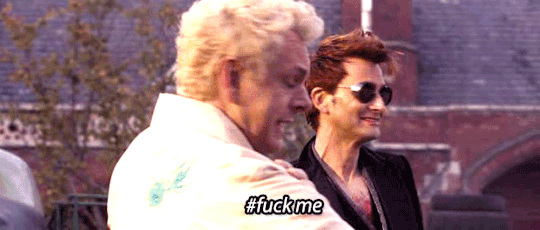
Meanwhile, Aziraphale sounds all innocent (it's faux-innocent, as it often is lol) and is going on about the paint on his coat and he says that he's "kept this coat in tip top condition for over 200 years" and starts to pout.
Crowley and Aziraphale are supernatural humanoid beings with feathers and Crowley is also a snake. They have a seemingly never-ending list of comparisons to other creatures of Earth happening and some of it trips over into their innuendo. A coat, on one level, is the coat that Aziraphale is wearing in the scene that was splattered in blue paint but... it's also a word used to describe the fur or hair of an animal.
Aziraphale has kept his coat-- the beige outer layer of his clothes-- in tip top condition-- so, in well-maintained, excellent condition-- for more than the last 200 years. Euphemistically-speaking, though... Aziraphale is referring to the apparently historically well-groomed state of his hair-- specifically, his pubic hair-- which he's always got lookin' fine and zhushed for visitors. Aziraphale keeps his coat in tip top condition because loves him the highest peaks of the tippity tops does the angel...
(Sidenote but Aziraphale has massive pubic hair thing happening, as this is not the only scene he's referred to it euphemistically. In S2, as we looked at in the meta about his dirty French, he used "plume" in its "feathered" sense to euphemistically refer to missing quality time with Lady Crowley's natural garden box.)
Is now a good time to mention Mr. Fell and the blowjob's formal name of fellatio? Fellation and fellatio are rooted in the Latin verb fellare, which means "to suck", though "to fellate" and "fellatio" became words relating to oral sex only as relatively recently as during the 1800s. The Latin verb, though, has existed basically for forever and considering Aziraphale's kind of cheeky use of Fell as his surname in reference to how while he might not have fallen to Hell in the angel/demon sense of it, he's "fallen" into "sin" of the Adam-and-Eve, food-and-sex sense of the term, one of the reasons behind choosing Fell as his surname then could be tied to the verb fellare and his penchant for giving and receiving oral sex. (And how do we know that it wasn't, say, Crowley in the 1800s who got the ball rolling on using that Latin verb to refer to a blowjob? lol) At minimum, it's too funny for Crowley and Aziraphale to have never made a joke about it at some point. Back to the paintball scene...
Crowley knows what tip top means in this scene and it's clearly already existed in Ineffable Husbands Speak for some time. His mending of Aziraphale's coat is then in an exaggerated manner involving some (magically unnecessary) blowing, visually referencing the tip top/blowjob wordplay that Aziraphale was doing to suggest that they get up to that activity soon:
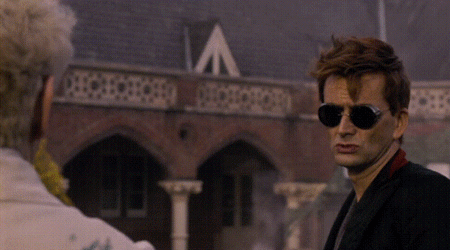
But tip top is far from the only blowjob-related term in this scene...
While this scene takes place in the 2019 present of S1, recall that I mentioned above that MLE is not that old as sociolects go. It's definitely old enough and close enough to Crowley and Aziraphale for them to know it-- and the above illustrates them using it-- but what about before MLE emerged to give them the tip top slang option? What did Crowley and Aziraphale call a blowjob in their language before the 1980s/1990s?
The paintball scene then sees them show us another euphemism for it that other scenes in the series show us that they've been using for at least a few hundred years. Let's talk about the etymology of 'thank' and what they mean when they offer to say 'thank you.'
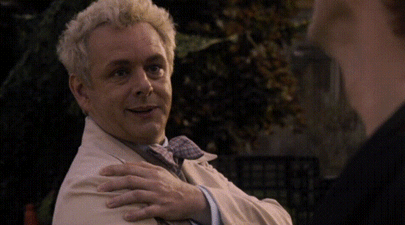
The word thank is etymologically tied to the same root words as both thought and think... which are, of course, things you do with your head. They are all rooted in the Latin tongere. The word tongue is rooted to both tongere and the Latin lingua, for languages. As a result, the words tongue, think, and thank are all linked together in their histories and, as an added bonus, are also tied to words related to languages and wordplay, which makes it all a little extra funny from hidden language/innuendo standpoint.
The other common euphemism for giving a blowjob is to refer to it as "giving head." You think with your head and use your tongue to speak but... you also use your tongue when you've got your head in your partner's lap... You bow your head to pray, which is referred to as to 'give thanks' to God... and you bow your head to make your partner feel tip top...
Oh, hello, Blasphemy Kink, Our Old Friend... 😇
In the paintball scene, Aziraphale smiles dirtily and says "oh, thank you" after Crowley mends his coat, and gives Crowley that look that says that he wants to give him a proper thank you for his help. Mrs. Sandwich in S2 picks up on the seamstress/clothing innuendo theme when she's going on suggestively about her girls' ability and willingness to mend a gentlemen's shirt, nodding back to Crowley's hollowed-cheeked bit of magical seamstressing in S1.
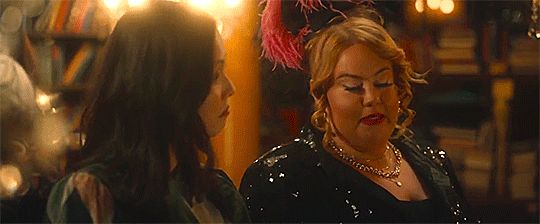
If you look at Crowley in the above Aziraphale-saying-thank-you gif, you'll notice from the movement of his head, that Crowley replied-- with a humorous tone-- the standard response to someone verbally saying "thank you" which is, of course: "You're welcome."
"You're welcome" is every bit as funny and dirty as "thank you" in this context...
First, there's that "welcome" is homophonic for both "will come" and "we'll come." Aziraphale says he wants to give thanks and Crowley replies with the assured, well, outcomes of that outpouring of gratitude. 😂 But there's also the amazing history of "welcome"...
"Welcome" is derived from combining two words in Old English: the prefix wil-, which means "desire, pleasure" and the word cuman, which means "come." Together, they also formed the word in Old English that is the origin of "welcome"-- 'wilcuma'-- which meant (I kid you not) "a person whose coming is pleasing."
Aziraphale is always very welcome, as far as Crowley is concerned lol.
The spelling evolved into "welcome" over time, thought to be influenced by the Old Norse velkominn (which is from where the modern German "welcome" of "willkommen" is derived.) Mixed in the evolution of "welcome" is also the Old French "bien venu" (which has evolved into its modern form of "bienvenue"). "Bien" in French means "good" and "venu" is of the French verb venir, which means "to come."
Obviously, the original meaning of wilcuma/welcome is in reference to hospitality of a less sexual nature. If you go to a holiday party at your aunt's house in the modern era, your aunt still might say "oh, we're so happy you could come!" and she's not referring to your ability to achieve orgasm when she says that but your ability to be able to clear your schedule and travel to her house for a party. The "come" in that sense is the same "come" in welcome/wilcuma, in that it refers to an arrival at a usually planned destination. It's from this same sense of travel, though, that language has evolved to refer to having had an orgasm as having "come." The language around orgasm contains a sense of the experience of it being a journey and a climax being a sense of arrival at the end of that journey.
It's that aspect of use of "to come" in language history and evolution that Crowley and Aziraphale are using as innuendo where it overlaps with even some of the most common things we say all the time-- "thank you" and "you're welcome." They are also on a road trip in the paintball scene when they break out the innuendo around giving thanks, so the travel-related wordplay has another layer to it. They actually have a lot of innuendo around travel and forms of transportation and where those overlap in language related to sex that we could look at it in another meta that I'll probably inevitably end up calling 'Travel Sweets'... 😉
This is why, with the exception of the "thank you"/"you're welcome"s in the paintball scene-- when they're both already giving each other fuck me eyes all over the place-- the scenes in which we see either of them saying the words "thank you" to one another are, so far, always posed as questions regarding whether or not they should 'say thank you' in that moment instead of just saying the words 'thank you' aloud, which adds to the idea of 'thank you' being euphemistic. The scenes show them asking if thanks should be said instead of just saying it because when they ask if they should 'say thank you', they are really asking if the other wants a blowjob.
Such as, in 1793:
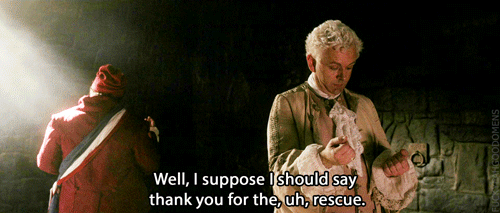
Aziraphale was legit going to blow Crowley right there but Crowley was looking to get the fuck out of the rapey torture cell first. I'm sure he was amenable to the angel giving thanks after some crepes, though... and 174 years later, in 1967:
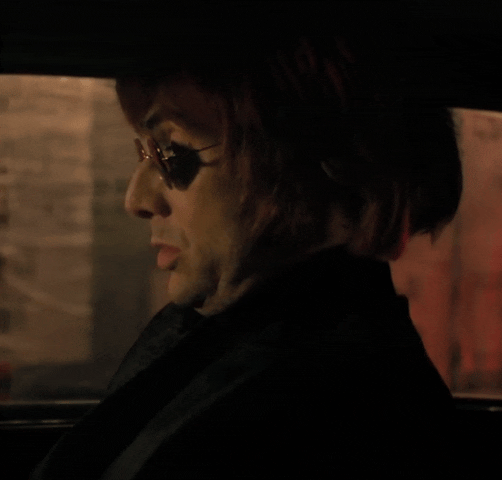
This one is particularly interesting from an euphemistic standpoint because Aziraphale had just given Crowley Holy Water, which is a bit akin to Beez's fly in S2, in that it's something his body is capable of making. It's his holiness as an angel that allows him to bless water and turn it from water into Holy Water which is, ironically, a substance that could kill Crowley, who has otherwise been drinking Aziraphale's holy water for quite some time by 1967 and who then replies to Aziraphale giving him actual Holy Water with the suggestion that he bow his head and pray a little over his communion font of a partner.
The other bit of this is that, even though they're alone in this instance, they're speaking on multiple layers as if they are not, which they do not always do when they're alone but which we have seen that they've evolved into feeling more comfortable doing sometimes when it comes to more intense conversations. (2.06 is a great example of just how much more comfortable they are speaking in their own language because of how they both try to run to it within a minute of trying to abandon it. A conversation that starts out trying to be more plain-spoken has Crowley invoking nightingales code by the end of it.)
Crowley really is asking Aziraphale if he should say thank you in 1967-- if he should say the words-- as well as the euphemistic layer to what he's saying here because he's surprised and moved and he doesn't know what to say. The choice to phrase it like that, though, and to also include the euphemistic meaning of saying thank you, is also intentional. They keep it up throughout the whole conversation-- "I'll give you a lift, anywhere you want to go" and Aziraphale's "go for a picnic" and "dine at The Ritz" are as literal as they are euphemistic, as everything else in their language is.
There is one other scene where tip top returns, though, and it is during this moment here:

Crowley and Aziraphale have driven back from Tadfield. From conversation had in previous scenes on the way, Crowley might have been planning on staying at the bookshop for awhile when they got back and Aziraphale wanted that. But then, as he's getting out of The Bentley, Aziraphale spotted that Anathema had left Agnes Nutter's book in the backseat and then had his whole moment of trying to rush into the bookshop alone to read the book without telling Crowley what was going on. Crowley asked if he was alright and Aziraphale replied:
"Perfectly, yes. Uh, tip top. Absolutely tickety-boo! Mind how you go!"
Aziraphale is anxious to get inside and be alone with the book but his words, if stressed, are structured to try to sound reassuring to Crowley that, even if he seems outwardly anxious, he's not upset with Crowley himself over anything, even if he's basically telling him to go home when, most nights, the assumption would be that he could stay a bit. He's tossing bits of wordplay at Crowley while running for the door. Perfectly/Perfect is from the Latin perfectus, which is combined of per-, meaning "through; completely" and facere, meaning "do." Perfect, as a result, can mean "done completely" in etymologically-based innuendo. If Aziraphale is then also referencing tip top here again and adding in perfectly, the suggestion seems to be that they pulled over to say thank you on the way home from Tadfield. Aziraphale is using it as an excuse to not invite Crowley in for more by trying to say he's completely done as a result and needs to be alone and nothing to see here, Crowley, nothing unusual, not at all acting weird and out of the ordinary! Aziraphale is absolutely ticketyboo...
Ticketyboo is Victorian-era slang and, despite Aziraphale wearing clothes from the 1800s constantly, we don't actually hear him use a lot of slang from the Victorian era or the rest of the 1800s still in modern times, which is a bit surprising. (And also disappointing as Victorian slang is amazing.) Aziraphale is actually a lot more current with his language than he is with any other aspect of his life, which is pretty interesting from a characterization standpoint... but which also makes his use of ticketyboo more interesting, though, as a result.
Ticketyboo means "everything is great." Its etymology is a little uncertain but it is thought to be a mashup of the Hindi phrase "thik hai" and the British English saying "that's the ticket," with the two phrases crossing back and forth between dialects of British officers stationed in India and both the people in India with whom they interacted and people originally from India who emigrated to London and interacted with British people there.
"Thik hai" means "it's alright" while "that's the ticket" has a pair of positive meanings. It can reflect the good feeling when something that is morally right, just and good has either happened or been suggested, as in: "Jury selection has finally fucking begun in one of the 1400 Donald Trump criminal trials-- that's the ticket!" It also can be used as an expression of pleasure, as in: "Jury selection has finally--" (just kidding though I would also count that as pleasurable lol)... as in: you take a sip of coffee first thing in the morning after a difficult night sleeping and sigh "oh, that's the ticket"... or your partner gets that knot out from under your shoulder blade-- "ahh, that's the ticket..." It's something that feels right and good.
But there's one other part of ticketyboo to consider, and that's the 'boo' part. The etymology of this bit, in particular, is muddled but what is interesting here is that while the word became ticketyboo-- all one word-- it is thought to actually have originally been spoken as two words: "tickety, boo." The 'thik hai/that's the ticket' part refers to the 'tickety' part of the word... so, what about the 'boo' part?
The general idea to date is that 'boo' evolved from 'bo' and that 'bo' is mixed into it because of homophonic overlap with the French word from which it is thought to have evolved-- 'beau.' The reason why this is thought to be part of the history of ticketyboo is that MLE has some overlap with AAVE (African-American Vernacular English) in the United States and, since roughly sometime in the 1980s, "boo" has been a gender-neutral term of endearment for someone's partner that originated in AAVE, exists in MLE, and has since spilled over into mainstream American slang.
'Beau' means "handsome" in French and it is, as you probably know, also an old-fashioned term for a boyfriend or a male admirer. It referred to a suitor who was romantically pursuing a woman-- bringing her flowers (and chocolates, when she opened a bookshop in particular lol), picking her up in his car and taking her on dates... courting her, as it used to be called. You might have a boyfriend but your great or great-great grandmother would have had a beau.
It's from this term that the more modern "boo" has arisen. Someone's boo in our modern times is their romantic partner of any gender and not necessarily someone with whom you are still in a courtship stage but can also refer to a spouse or a partner with whom you are in a committed relationship.
As a result, the reason why Aziraphale might be using ticketyboo in 2019 when he has stopped most of the rest of the great Victorian slang he undoubtedly misses is not necessarily because he's randomly using fusty old language because he's stuck in the past. It could actually be because he is using old slang that Crowley also remembers in a modern way in their wordplay in the present, referencing where it overlaps with the more current slang with which it shares an origin.
Aziraphale is not so much just saying "ticketyboo" as much he's also saying its origins of "tickety, boo" and referencing boo/beau to both refer to Crowley as handsome and as his boyfriend/partner within the full history of the one word of "boo" that he says.
Aziraphale's response to Crowley asking if he's alright then becomes akin to basically this, from a wordplay standpoint:
Yes, perfectly! Just worn out from the day, am in tip top shape from that tip top though haha! Not at all looking cagey and nervous nope nothing to fret about everything is absolutely fine, not to worry, my weirdness right now is not about you! You're just the lovely ticket as you always are. Good night now, my handsome boo. Do be safe getting home.
Crowley was understandably, though, thoroughly confused by this because Aziraphale dropped ticketyboo while acting weird and not letting him come inside for a nightcap and at least a little canoodle but Aziraphale's weirdness was worth it for listening to Crowley sound out the term-- "TiCKeTyboo?"-- while trying to math out what had gotten into his angel. I think he called me his handsome boyfriend while having a nervous breakdown. Weird, but also probably in character...

On a darker note? Look at how much the ticketyboo scene is a more light-hearted version of the end of 2.06, in a way. Aziraphale sees the book that can stop the end of the world but he doesn't tell Crowley about it-- just as how Aziraphale learned of The Second Coming from "The Metatron" but instead of crossing the street to tell Crowley who, again, was standing beside The Bentley, Aziraphale keeps the information to himself and goes inside, shutting the door, leaving Crowley standing in the street for a moment before he gets in the car and drives off. Just an observation, not sure yet exactly how it would all fit together, but we'll see in S3...
I want to go back to talking about "giving thanks" for a moment because we have to look at one, other scene that's very relevant to this and it's this one:
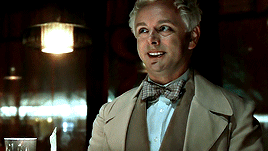
In 1.01, we are reintroduced to Aziraphale after the scene on the wall in Eden and the time jump of thousands of years. The very first thing we ever see him do is thank his friend for preparing the sushi he was planning on enjoying with the delayed-by-Hell Crowley. We see Aziraphale bow his head over the food and say "arigato"-- Japanese for "thank you"-- before starting his meal. Ojigi-- the tradition of bowing out of a sign of respect in polite society in Japan-- is a sign of reverence and, in situations like the one in which Aziraphale bows, is an expression of gratitude. Here's Aziraphale showing a devout sense of reverence to the skills of the human chef who prepared for him a meal he's going to enjoy with a pleasure that overlaps with sexual pleasure and that is his form of prayer before the meal. He and Crowley worship more at the altar of humanity and in ways that tie closer to an Eastern sense of spirituality than in devotion to those of a monotheistic God.
Pagans of The Good Times, as a certain Irish God with a song on Crowley's official playlist calls it. Hungry work...
Because, in addition to the general sense of a definition of prayer being "to give thanks to God," there is also Grace, the traditional prayer said at the start of a meal to thank God for the blessings of the food on the table. Crowley and Aziraphale's hidden language when it comes to sex is entirely structured around food as a result of the apple, the ox ribs and, eventually, the oysters. Alcohol, bread, fish...they've got a real water-to-wine, loaves-and-fishes, and fuck- Leviticus-sideways thing going on lol... so it is deliciously dirty and very funny that they developed euphemisms for giving each other a blowjob that are related to saying grace by bowing their heads in prayer and giving thanks.
For the food they they about to eat in S3, may The Voice of Frances McDormand make them truly grateful. Amen.

188 notes
·
View notes
Text
Tip Top, Thank You. Ticketyboo!
Did you all know that "tip top" is MLE slang for a blowjob?

Now that I have your attention lol, some etymological meta on The Ineffables' rather tip top use of slang and wordplay and just what it means to offer to say "thank you" in Ineffable Husbands Speak under the cut. It's absolutely ticketyboo...
When we humans who speak English refer to oral sex performed on a penis, the most common slang we use for this today is to call it "giving a blowjob." Linguistically-speaking, this term is actually relatively new and how it came to be is a truly muddled bit of etymological history. As recently as the early 1950s, the American military was innocently referring to their war planes in different publications as "blow jobs"-- meaning that the planes were well-equipped to carry out destruction. This-- and other instances like this at the time-- shows that the meaning of "blowjob" as slang for oral sex performed on someone with a penis either had not yet really evolved at all or had not yet penetrated the mainstream enough for any of the people involved in these articles (journalists, editors, four-star generals lol...) to suggest that, perhaps, a different term be used to describe these planes.
Whether or not the slang term "blowjob" is actually derived from the military... as soldiers appropriating the language of war to turn it into the language of sex has been happening since the beginning of time... or whether it arose in a different way, is still unknown. The earliest documentation of something like "blowjob" comes from sex workers in the 1930s who referred to what we call giving a blowjob as "blowing someone off." This is obviously funny now from a language evolution perspective, considering that when we use that phrase today, what we mean is that we dodged an interaction with someone, as in "I was supposed to grab coffee with my friend yesterday but I was tired so I blew him off." If you said that sentence to a Mrs. Sandwich in 1935, she'd have several follow up questions...
Further complicating the history of the term is that since the origin of "blowjob" as a term is murky, no one has ever really been very clear on which kind of "blow" is being addressed in it or if it refers to multiple kinds at once. Is it a "blowjob" because of aspects of the act of it or is it a "blowjob" because the end result is, as the military influence might suggest, that the recipient "blows", meaning comes apart/ejaculates? Either way, it's the most common way you refer to this type of oral sex in English but, as we know, different groups of people have additional slang to refer to it as well. Crowley and Aziraphale are shown in S1 to have picked up the MLE slang term for it of tip top.
MLE stands for Multicultural London English and it is what is known as a sociolect. A sociolect is a dialect that's built more out of being a part of a certain social class or group. MLE is also a multiethnolect, which means that it is a dialect derived from the influence of people of different ethnicities and backgrounds. It is the language spoken by a diverse group of working-class people, most of them younger, who live and/or work in London, and has mostly emerged since the 1980s. One of its slang words is the use of tip top to mean a blowjob. It is sometimes shortened just to top, if context in the sentence allows for the meaning to be understood as a blowjob and to not be confused with other sexual meanings around the word "top."
Tip top is an example of different dialects crossing and interweaving. MLE uses "side ting", for example, to describe sleeping with someone other than one's partner which, just like its American counterpart of "side piece", is derived from the British English phrase "bit on the side", which we also hear Nina and Crowley use in S2. In S1, Aziraphale used ticketyboo, which is Victorian-era slang that is also thought to be an example of different dialects crossing. Theories on its etymology involve a Hindi saying, a British one, and a bit of French intermixing. It is an example of Crowley and Aziraphale's interest in the ongoing evolution of language and how they weave that into their wordplay. We'll come back to ticketyboo later on. Tip top and saying thank you are up first...
Tip top is originally a British English-rooted expression meaning someone is feeling excellent or that something is in excellent shape. It refers to the tip of the top-- the highest of peaks. There is then a fun sense of humor to it being adopted from its endearing but potentially kind of stuffy British use ("How are you, my good man?"/"I am tip top, old chap! Right as rain!" lol) to becoming slang for oral sex in a dialect used by predominantly non-white, younger Londoners, many of whom emigrated to England or who come from immigrant families, particularly from countries that either still are part of or were formerly part of The British Empire. There's a top shelf, droll trolling of the colonizing British Empire happening there in the language evolution and it's also a good example of how when different cultures overlap, so too do their languages.
Crowley and Aziraphale always have to choose words that are able to remain hidden beneath the surface layer of their conversation. One of their wordplay kinks that we've observed are words that have multiple different meanings, as we looked at in other metas. Their favorites are ones with hilariously contradictory meanings that they can use to create sentences that have one meaning on the surface with one interpretation of the definitions used of the words and another entirely if the other meanings of those same words are used. They get off a bit on using common words in Ineffable Husbands Speak when speaking to others-- particularly angels and demons-- who have no idea what they're talking about because they only understand one level of meaning of the words being used and assume the context implying that one level of meaning is correct. Examples of these types of scenes: the Aziraphale one in Heaven that I'll mention again below, Aziraphale in Hell in 1.06 and then telling Crowley "I asked them for a rubber duck" to make him laugh afterwards, Crowley's "can I get a wahoo?" and what he says to Gabriel before getting into the fire in 1.06 having a different meaning in Ineffable Husbands Speak, as well as almost everything Crowley said to Muriel in the second half of S2 (the handcuff innuendo; "extremely alcoholic breakfast at The Ritz", etc..)
We've seen that some of their favorite words like this are wily (meaning sly, tricky, crafty on one level but also alluring, magically attractive, sexy on another), smitten (to be attacked by an angel with the righteous fury of God but also to be struck down with love and infatuation), and thwart (to oppose and stop but also to cross from one side to the other.)

Aziraphale called Crowley a "wily adversary" to the angels in Heaven and could barely keep a straight face because when he and Crowley say "wily" to one another, they mean it as "sexy." (As in, "he was a wily old serpent and I was technically on apple tree duty.") Crowley used "thwart" multiple times in the same scene in 1.01 as an euphemism for "fucking", as in:

(I also love that, out of all the different names the thing has, Crowley and Aziraphale call it "The Divine Plan" while flirting in this scene, since divine means "of God" or "like God" but it also is used just to mean "delightful" or "delicious," as in "the wedding was lovely-- we had a divine time!" or "mmm, gah, this cake is divine..."
Additionally, another meaning of thwart is that it's the term for the seat in a rowboat that someone would sit on to row a boat and, like we looked at in the Fish meta, Crowley and Aziraphale have their whole we-got-oysters-the-first-night-we-slept-together-so-now-everything-related-to-fish-and-the-sea-is-a-sexual-euphemism-or-metaphor thing happening. Wahoo to that sushi but anyway we're talking about blowjobs, so... *redirects self*...)
As we were talking about at the start of this meta, calling oral sex on a penis a "blowjob" is a relatively new thing but different euphemisms for it have existed forever. By the above measure for words used in Ineffable Husbands Speak, though, tip top is a tip top choice for a blowjob euphemism, old chaps, as there is just a lot of word nerdy wordplay potential there. One of the reasons why Crowley and Aziraphale use it is also one of the reasons why it has likely evolved to mean a blowjob in MLE in the first place and that is because of the innuendo inherent in a phrase involving "tip", as in the sensitive tip of the penis, which is especially humorous when added into the fact that "tip top" means "excellent." You're just hitting the tippity top when you get a tip top, no? Just reaching the highest of those climatic peaks...
The first time we hear Aziraphale use tip top is in the paintball scene at Tadfield Manor in S1. Crowley and Aziraphale are hit with the paint, Crowley shapeshifts into a roaring snake and causes a guy to pass out and his already high levels of horniness increases until he's doing the lip bite and the cute nose scrunch that screams 'do me':

Meanwhile, Aziraphale sounds all innocent (it's faux-innocent, as it often is lol) and is going on about the paint on his coat and he says that he's "kept this coat in tip top condition for over 200 years" and starts to pout.
Crowley and Aziraphale are supernatural humanoid beings with feathers and Crowley is also a snake. They have a seemingly never-ending list of comparisons to other creatures of Earth happening and some of it trips over into their innuendo. A coat, on one level, is the coat that Aziraphale is wearing in the scene that was splattered in blue paint but... it's also a word used to describe the fur or hair of an animal.
Aziraphale has kept his coat-- the beige outer layer of his clothes-- in tip top condition-- so, in well-maintained, excellent condition-- for more than the last 200 years. Euphemistically-speaking, though... Aziraphale is referring to the apparently historically well-groomed state of his hair-- specifically, his pubic hair-- which he's always got lookin' fine and zhushed for visitors. Aziraphale keeps his coat in tip top condition because loves him the highest peaks of the tippity tops does the angel...
(Sidenote but Aziraphale has massive pubic hair thing happening, as this is not the only scene he's referred to it euphemistically. In S2, as we looked at in the meta about his dirty French, he used "plume" in its "feathered" sense to euphemistically refer to missing quality time with Lady Crowley's natural garden box.)
Is now a good time to mention Mr. Fell and the blowjob's formal name of fellatio? Fellation and fellatio are rooted in the Latin verb fellare, which means "to suck", though "to fellate" and "fellatio" became words relating to oral sex only as relatively recently as during the 1800s. The Latin verb, though, has existed basically for forever and considering Aziraphale's kind of cheeky use of Fell as his surname in reference to how while he might not have fallen to Hell in the angel/demon sense of it, he's "fallen" into "sin" of the Adam-and-Eve, food-and-sex sense of the term, one of the reasons behind choosing Fell as his surname then could be tied to the verb fellare and his penchant for giving and receiving oral sex. (And how do we know that it wasn't, say, Crowley in the 1800s who got the ball rolling on using that Latin verb to refer to a blowjob? lol) At minimum, it's too funny for Crowley and Aziraphale to have never made a joke about it at some point. Back to the paintball scene...
Crowley knows what tip top means in this scene and it's clearly already existed in Ineffable Husbands Speak for some time. His mending of Aziraphale's coat is then in an exaggerated manner involving some (magically unnecessary) blowing, visually referencing the tip top/blowjob wordplay that Aziraphale was doing to suggest that they get up to that activity soon:

But tip top is far from the only blowjob-related term in this scene...
While this scene takes place in the 2019 present of S1, recall that I mentioned above that MLE is not that old as sociolects go. It's definitely old enough and close enough to Crowley and Aziraphale for them to know it-- and the above illustrates them using it-- but what about before MLE emerged to give them the tip top slang option? What did Crowley and Aziraphale call a blowjob in their language before the 1980s/1990s?
The paintball scene then sees them show us another euphemism for it that other scenes in the series show us that they've been using for at least a few hundred years. Let's talk about the etymology of 'thank' and what they mean when they offer to say 'thank you.'

The word thank is etymologically tied to the same root words as both thought and think... which are, of course, things you do with your head. They are all rooted in the Latin tongere. The word tongue is rooted to both tongere and the Latin lingua, for languages. As a result, the words tongue, think, and thank are all linked together in their histories and, as an added bonus, are also tied to words related to languages and wordplay, which makes it all a little extra funny from hidden language/innuendo standpoint.
The other common euphemism for giving a blowjob is to refer to it as "giving head." You think with your head and use your tongue to speak but... you also use your tongue when you've got your head in your partner's lap... You bow your head to pray, which is referred to as to 'give thanks' to God... and you bow your head to make your partner feel tip top...
Oh, hello, Blasphemy Kink, Our Old Friend... 😇
In the paintball scene, Aziraphale smiles dirtily and says "oh, thank you" after Crowley mends his coat, and gives Crowley that look that says that he wants to give him a proper thank you for his help. Mrs. Sandwich in S2 picks up on the seamstress/clothing innuendo theme when she's going on suggestively about her girls' ability and willingness to mend a gentlemen's shirt, nodding back to Crowley's hollowed-cheeked bit of magical seamstressing in S1.

If you look at Crowley in the above Aziraphale-saying-thank-you gif, you'll notice from the movement of his head, that Crowley replied-- with a humorous tone-- the standard response to someone verbally saying "thank you" which is, of course: "You're welcome."
"You're welcome" is every bit as funny and dirty as "thank you" in this context...
First, there's that "welcome" is homophonic for both "will come" and "we'll come." Aziraphale says he wants to give thanks and Crowley replies with the assured, well, outcomes of that outpouring of gratitude. 😂 But there's also the amazing history of "welcome"...
"Welcome" is derived from combining two words in Old English: the prefix wil-, which means "desire, pleasure" and the word cuman, which means "come." Together, they also formed the word in Old English that is the origin of "welcome"-- 'wilcuma'-- which meant (I kid you not) "a person whose coming is pleasing."
Aziraphale is always very welcome, as far as Crowley is concerned lol.
The spelling evolved into "welcome" over time, thought to be influenced by the Old Norse velkominn (which is from where the modern German "welcome" of "willkommen" is derived.) Mixed in the evolution of "welcome" is also the Old French "bien venu" (which has evolved into its modern form of "bienvenue"). "Bien" in French means "good" and "venu" is of the French verb venir, which means "to come."
Obviously, the original meaning of wilcuma/welcome is in reference to hospitality of a less sexual nature. If you go to a holiday party at your aunt's house in the modern era, your aunt still might say "oh, we're so happy you could come!" and she's not referring to your ability to achieve orgasm when she says that but your ability to be able to clear your schedule and travel to her house for a party. The "come" in that sense is the same "come" in welcome/wilcuma, in that it refers to an arrival at a usually planned destination. It's from this same sense of travel, though, that language has evolved to refer to having had an orgasm as having "come." The language around orgasm contains a sense of the experience of it being a journey and a climax being a sense of arrival at the end of that journey.
It's that aspect of use of "to come" in language history and evolution that Crowley and Aziraphale are using as innuendo where it overlaps with even some of the most common things we say all the time-- "thank you" and "you're welcome." They are also on a road trip in the paintball scene when they break out the innuendo around giving thanks, so the travel-related wordplay has another layer to it. They actually have a lot of innuendo around travel and forms of transportation and where those overlap in language related to sex that we could look at it in another meta that I'll probably inevitably end up calling 'Travel Sweets'... 😉
This is why, with the exception of the "thank you"/"you're welcome"s in the paintball scene-- when they're both already giving each other fuck me eyes all over the place-- the scenes in which we see either of them saying the words "thank you" to one another are, so far, always posed as questions regarding whether or not they should 'say thank you' in that moment instead of just saying the words 'thank you' aloud, which adds to the idea of 'thank you' being euphemistic. The scenes show them asking if thanks should be said instead of just saying it because when they ask if they should 'say thank you', they are really asking if the other wants a blowjob.
Such as, in 1793:

Aziraphale was legit going to blow Crowley right there but Crowley was looking to get the fuck out of the rapey torture cell first. I'm sure he was amenable to the angel giving thanks after some crepes, though... and 174 years later, in 1967:

This one is particularly interesting from an euphemistic standpoint because Aziraphale had just given Crowley Holy Water, which is a bit akin to Beez's fly in S2, in that it's something his body is capable of making. It's his holiness as an angel that allows him to bless water and turn it from water into Holy Water which is, ironically, a substance that could kill Crowley, who has otherwise been drinking Aziraphale's holy water for quite some time by 1967 and who then replies to Aziraphale giving him actual Holy Water with the suggestion that he bow his head and pray a little over his communion font of a partner.
The other bit of this is that, even though they're alone in this instance, they're speaking on multiple layers as if they are not, which they do not always do when they're alone but which we have seen that they've evolved into feeling more comfortable doing sometimes when it comes to more intense conversations. (2.06 is a great example of just how much more comfortable they are speaking in their own language because of how they both try to run to it within a minute of trying to abandon it. A conversation that starts out trying to be more plain-spoken has Crowley invoking nightingales code by the end of it.)
Crowley really is asking Aziraphale if he should say thank you in 1967-- if he should say the words-- as well as the euphemistic layer to what he's saying here because he's surprised and moved and he doesn't know what to say. The choice to phrase it like that, though, and to also include the euphemistic meaning of saying thank you, is also intentional. They keep it up throughout the whole conversation-- "I'll give you a lift, anywhere you want to go" and Aziraphale's "go for a picnic" and "dine at The Ritz" are as literal as they are euphemistic, as everything else in their language is.
There is one other scene where tip top returns, though, and it is during this moment here:

Crowley and Aziraphale have driven back from Tadfield. From conversation had in previous scenes on the way, Crowley might have been planning on staying at the bookshop for awhile when they got back and Aziraphale wanted that. But then, as he's getting out of The Bentley, Aziraphale spotted that Anathema had left Agnes Nutter's book in the backseat and then had his whole moment of trying to rush into the bookshop alone to read the book without telling Crowley what was going on. Crowley asked if he was alright and Aziraphale replied:
"Perfectly, yes. Uh, tip top. Absolutely tickety-boo! Mind how you go!"
Aziraphale is anxious to get inside and be alone with the book but his words, if stressed, are structured to try to sound reassuring to Crowley that, even if he seems outwardly anxious, he's not upset with Crowley himself over anything, even if he's basically telling him to go home when, most nights, the assumption would be that he could stay a bit. He's tossing bits of wordplay at Crowley while running for the door. Perfectly/Perfect is from the Latin perfectus, which is combined of per-, meaning "through; completely" and facere, meaning "do." Perfect, as a result, can mean "done completely" in etymologically-based innuendo. If Aziraphale is then also referencing tip top here again and adding in perfectly, the suggestion seems to be that they pulled over to say thank you on the way home from Tadfield. Aziraphale is using it as an excuse to not invite Crowley in for more by trying to say he's completely done as a result and needs to be alone and nothing to see here, Crowley, nothing unusual, not at all acting weird and out of the ordinary! Aziraphale is absolutely ticketyboo...
Ticketyboo is Victorian-era slang and, despite Aziraphale wearing clothes from the 1800s constantly, we don't actually hear him use a lot of slang from the Victorian era or the rest of the 1800s still in modern times, which is a bit surprising. (And also disappointing as Victorian slang is amazing.) Aziraphale is actually a lot more current with his language than he is with any other aspect of his life, which is pretty interesting from a characterization standpoint... but which also makes his use of ticketyboo more interesting, though, as a result.
Ticketyboo means "everything is great." Its etymology is a little uncertain but it is thought to be a mashup of the Hindi phrase "thik hai" and the British English saying "that's the ticket," with the two phrases crossing back and forth between dialects of British officers stationed in India and both the people in India with whom they interacted and people originally from India who emigrated to London and interacted with British people there.
"Thik hai" means "it's alright" while "that's the ticket" has a pair of positive meanings. It can reflect the good feeling when something that is morally right, just and good has either happened or been suggested, as in: "Jury selection has finally fucking begun in one of the 1400 Donald Trump criminal trials-- that's the ticket!" It also can be used as an expression of pleasure, as in: "Jury selection has finally--" (just kidding though I would also count that as pleasurable lol)... as in: you take a sip of coffee first thing in the morning after a difficult night sleeping and sigh "oh, that's the ticket"... or your partner gets that knot out from under your shoulder blade-- "ahh, that's the ticket..." It's something that feels right and good.
But there's one other part of ticketyboo to consider, and that's the 'boo' part. The etymology of this bit, in particular, is muddled but what is interesting here is that while the word became ticketyboo-- all one word-- it is thought to actually have originally been spoken as two words: "tickety, boo." The 'thik hai/that's the ticket' part refers to the 'tickety' part of the word... so, what about the 'boo' part?
The general idea to date is that 'boo' evolved from 'bo' and that 'bo' is mixed into it because of homophonic overlap with the French word from which it is thought to have evolved-- 'beau.' The reason why this is thought to be part of the history of ticketyboo is that MLE has some overlap with AAVE (African-American Vernacular English) in the United States and, since roughly sometime in the 1980s, "boo" has been a gender-neutral term of endearment for someone's partner that originated in AAVE, exists in MLE, and has since spilled over into mainstream American slang.
'Beau' means "handsome" in French and it is, as you probably know, also an old-fashioned term for a boyfriend or a male admirer. It referred to a suitor who was romantically pursuing a woman-- bringing her flowers (and chocolates, when she opened a bookshop in particular lol), picking her up in his car and taking her on dates... courting her, as it used to be called. You might have a boyfriend but your great or great-great grandmother would have had a beau.
It's from this term that the more modern "boo" has arisen. Someone's boo in our modern times is their romantic partner of any gender and not necessarily someone with whom you are still in a courtship stage but can also refer to a spouse or a partner with whom you are in a committed relationship.
As a result, the reason why Aziraphale might be using ticketyboo in 2019 when he has stopped most of the rest of the great Victorian slang he undoubtedly misses is not necessarily because he's randomly using fusty old language because he's stuck in the past. It could actually be because he is using old slang that Crowley also remembers in a modern way in their wordplay in the present, referencing where it overlaps with the more current slang with which it shares an origin.
Aziraphale is not so much just saying "ticketyboo" as much he's also saying its origins of "tickety, boo" and referencing boo/beau to both refer to Crowley as handsome and as his boyfriend/partner within the full history of the one word of "boo" that he says.
Aziraphale's response to Crowley asking if he's alright then becomes akin to basically this, from a wordplay standpoint:
Yes, perfectly! Just worn out from the day, am in tip top shape from that tip top though haha! Not at all looking cagey and nervous nope nothing to fret about everything is absolutely fine, not to worry, my weirdness right now is not about you! You're just the lovely ticket as you always are. Good night now, my handsome boo. Do be safe getting home.
Crowley was understandably, though, thoroughly confused by this because Aziraphale dropped ticketyboo while acting weird and not letting him come inside for a nightcap and at least a little canoodle but Aziraphale's weirdness was worth it for listening to Crowley sound out the term-- "TiCKeTyboo?"-- while trying to math out what had gotten into his angel. I think he called me his handsome boyfriend while having a nervous breakdown. Weird, but also probably in character...

On a darker note? Look at how much the ticketyboo scene is a more light-hearted version of the end of 2.06, in a way. Aziraphale sees the book that can stop the end of the world but he doesn't tell Crowley about it-- just as how Aziraphale learned of The Second Coming from "The Metatron" but instead of crossing the street to tell Crowley who, again, was standing beside The Bentley, Aziraphale keeps the information to himself and goes inside, shutting the door, leaving Crowley standing in the street for a moment before he gets in the car and drives off. Just an observation, not sure yet exactly how it would all fit together, but we'll see in S3...
I want to go back to talking about "giving thanks" for a moment because we have to look at one, other scene that's very relevant to this and it's this one:

In 1.01, we are reintroduced to Aziraphale after the scene on the wall in Eden and the time jump of thousands of years. The very first thing we ever see him do is thank his friend for preparing the sushi he was planning on enjoying with the delayed-by-Hell Crowley. We see Aziraphale bow his head over the food and say "arigato"-- Japanese for "thank you"-- before starting his meal. Ojigi-- the tradition of bowing out of a sign of respect in polite society in Japan-- is a sign of reverence and, in situations like the one in which Aziraphale bows, is an expression of gratitude. Here's Aziraphale showing a devout sense of reverence to the skills of the human chef who prepared for him a meal he's going to enjoy with a pleasure that overlaps with sexual pleasure and that is his form of prayer before the meal. He and Crowley worship more at the altar of humanity and in ways that tie closer to an Eastern sense of spirituality than in devotion to those of a monotheistic God.
Pagans of The Good Times, as a certain Irish God with a song on Crowley's official playlist calls it. Hungry work...
Because, in addition to the general sense of a definition of prayer being "to give thanks to God," there is also Grace, the traditional prayer said at the start of a meal to thank God for the blessings of the food on the table. Crowley and Aziraphale's hidden language when it comes to sex is entirely structured around food as a result of the apple, the ox ribs and, eventually, the oysters. Alcohol, bread, fish...they've got a real water-to-wine, loaves-and-fishes, and fuck- Leviticus-sideways thing going on lol... so it is deliciously dirty and very funny that they developed euphemisms for giving each other a blowjob that are related to saying grace by bowing their heads in prayer and giving thanks.
For the food they they about to eat in S3, may The Voice of Frances McDormand make them truly grateful. Amen.

188 notes
·
View notes
Text
When might S3 come out? 🤔 Prediction :)
So:
S1 main shooting finished in March 2018, the premiere of S1 was in May 2019 => cca 14 months after
S2 main shooting finished in March 2022, the premiere of S2 was in July 2023 => cca 16 month after
=> let's take an average of that 15 months
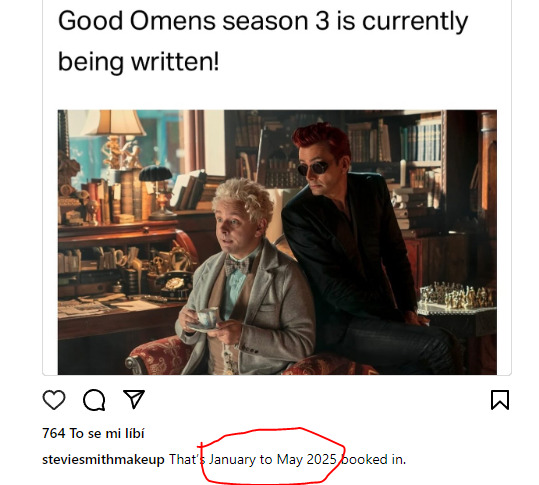
S3 plans seems to finish in May 2025 => The premiere could be 15 months later in August 2026

Thank you for coming to my TED talk :D ❤
1K notes
·
View notes
Text
"percy manipulated bob" "percy manipulated charon" i think the thing we all need to focus on more is the fact that he accidentally manipulated the whole of the pjo fandom into seeing him as dumb and stupid when he was just insecure as hell
7K notes
·
View notes
Text
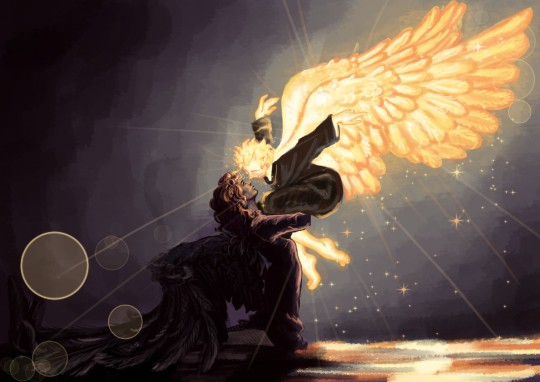
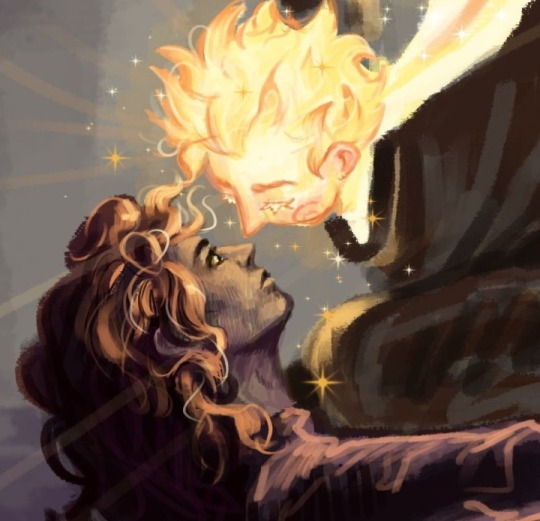
Im drawing wings everywere. Someone help me
HE IS HIS STAR, AAAAARRRGH
6K notes
·
View notes
Text
i knew from a young age i was weird and off putting and unlovable
29K notes
·
View notes
Text
Destroy the myth that libraries are no longer relevant. If you use your library, please reblog.
149K notes
·
View notes
Text
Arthur: *surviving because of pure dumb luck*
Merlin: *is pure dumb luck*
1K notes
·
View notes
Text
BAFTA: Let's nominate David Tennant for "Male performance in a comedy"
The Comedy:
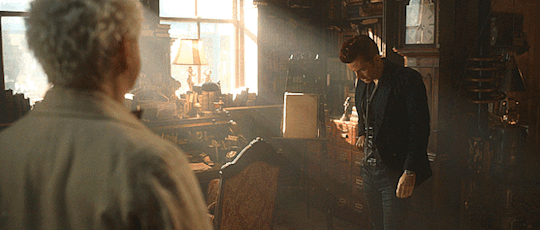

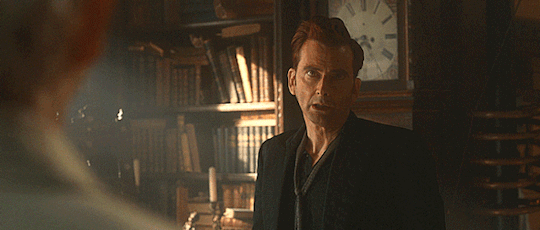

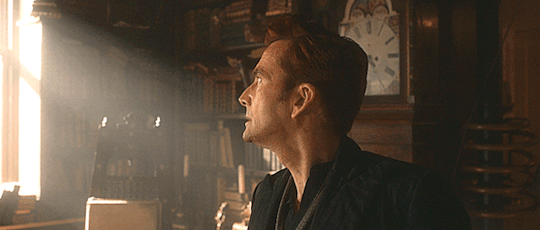
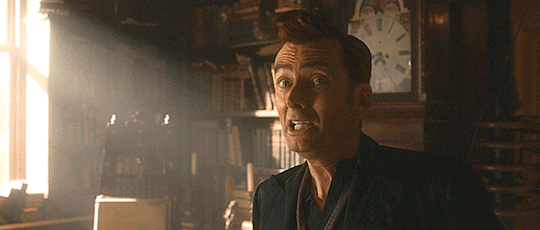


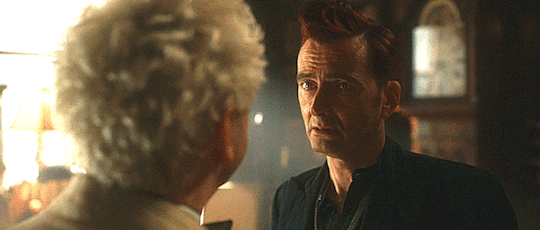
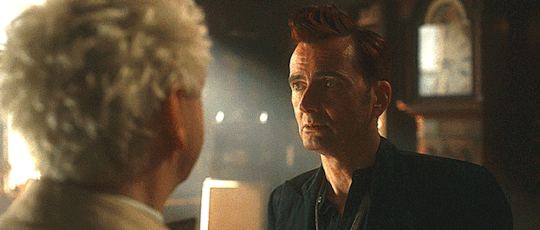
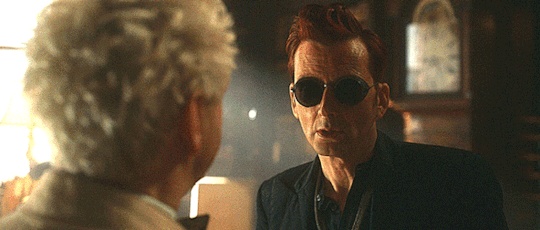




Never heard of an actor who got his nominee for The Perfect Grunt™.

4K notes
·
View notes
Text
The camera cutting to Neil in the ‘carpe diem’ scene after Mr Keating says ‘every one of us in this room will one day stop breathing’ IM SICKKK
240 notes
·
View notes
Text
bitches be like “this is my comfort film”
and then bring out Dead Poets Society
they squeeze all the comfort out of it and contradict it with pain
382 notes
·
View notes
Text
i will literally pay someone to watch dead poets society with me atp
136 notes
·
View notes
Text
Clutching my pearls with tears in my eyes every time I see a dead poets society edit as if I haven't seen these exact clips hundreds of times
218 notes
·
View notes
